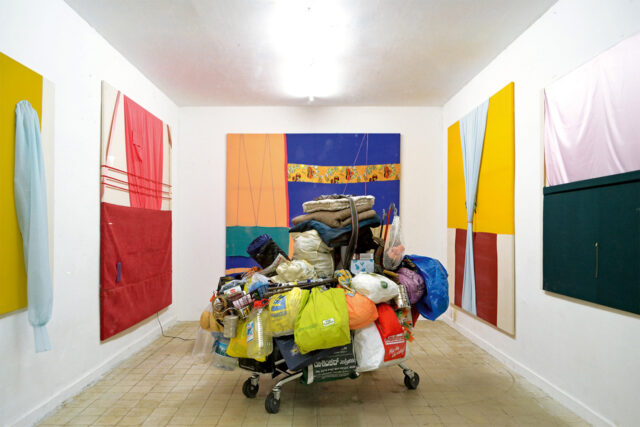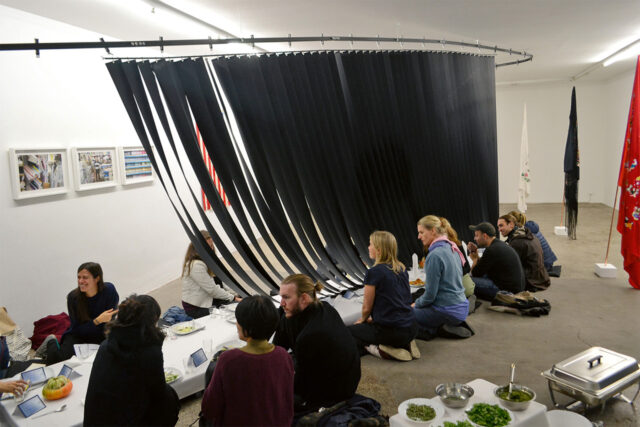… But definitely key words such as “project space”, “artist-run”, “grassroots”, “laboratory”, etc. are still good key words (to be constantly re-discussed) that underline the spirit and intention of such open experiments that somehow can only function as open experiments!
A free interactive and inclusive format to create, express, and exchange interdisciplinary ideas with spontaneous, playful, DIY approaches; having access to and exchanging various physical spaces to manifest all facets of what independent cultural production can unfold – also in the sense of creating social awareness and responsibility due to the fact that every single participant, no matter the “role” or “title” is deeply aware & involved in the process of making things happen, sharing responsibilities and profits (if there are any 🙂
… Investors and businesses assumed the form of faceless international partnerships with enormous capital and devouring public resources deciding on the future of all citizens, delivering less and less social protection and consideration for cultural and social diversity.… Still nowadays, the more and more international “g-local” Berliner independent cultural scene has been able to grow, interconnect, and continue to establish strategies to be a political protagonist of this long debate, also representing an impressive cultural resource to profit from.Kunst ist ein dialogischer Prozess, der zwischen Kunstschaffenden und Rezipient*innen entsteht. Ihn lebendig zu halten, offen für Fragen, Irritationen und Handlungsmöglichkeiten. Sowie autonom arbeitenden Künstler*innen einen Raum zu geben, das sehen wir als unsere Aufgabe an.



